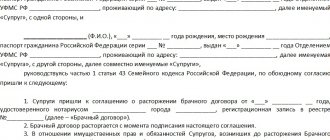The meaning of the articles
Meaning of Art. 131, 132 of the Civil Procedure Code of the Russian Federation is difficult to overestimate. They form the basis of the requirements for all applications submitted to the court. This includes claim, simplified, and special proceedings.
Failure to comply with the provisions of the law obliges the judge to leave the claim without progress. The application remains in an interim state. Next, the claimant is given time to correct errors and omissions.
Due to some violations, the claim is immediately returned to the applicant, and after the errors are corrected, it must be filed again.
Identification of some shortcomings in the application after the commencement of consideration of the case on the merits gives the court the right to close the case and leave the claim without consideration, canceling all previous decisions.
The conclusion is based on judicial practice on the application of Art. 131, 132 of the Civil Procedure Code of the Russian Federation, including by judges of the Supreme Court of the country.
Returning the claim does not stop the statute of limitations from running, and the plaintiff risks subsequently losing the right to go to court.
The procedure for calculating the amount of the claim
Features of calculating the cost of a claim depend on the subject of the claim:
- cash;
- property;
- alimony.
For collection of funds
The amount of the claim for the recovery of funds may include the following components:
- the amount of monetary obligations under the agreement;
- interest for the illegal use of the plaintiff’s funds;
- penalty.
The penalty is calculated by the plaintiff himself at the time of filing the application with the court. According to Resolution of the Plenum of the Supreme Arbitration Court of the Russian Federation No. 8 dated July 1, 1996, the period of trial before the decision is not used in the calculation.
Learn how to file a defamation claim. Read about a civil claim in a criminal trial in our article.
Interest for the use of funds by the defendant is calculated for the entire period until the day the debt is repaid, regardless of the date of the court decision.
Upon claim of property
The cost of a claim for reclaiming property is calculated based on its value. In this case, the statement of claim can be drawn up for the following property:
- illegally appropriated (Article 301 of the Civil Code of the Russian Federation);
- officially formalized by the acquirer on legal terms (Article 302 of the Civil Code of the Russian Federation).
The total amount of the property claim includes:
- the amount of income received by the new illegal owner at the time of unlawful use of the property;
- the amount of income received by the bona fide owner, starting from the date of receipt of the claim for the return of property.
The plaintiff has the right to demand the return of property from a bona fide purchaser if the following circumstances exist:
- the property was transferred for the use of the new owner free of charge or for compensation from a person who does not have the right to alienate it;
- the new owner did not have information about the illegal transfer of property;
- the subject of the claim was stolen or lost by its previous owner.
In order for the judicial investigation to proceed faster, the plaintiff must provide evidence of the correct determination of the value of the property.
For alimony requests
The cost of a claim for alimony obligations includes the total amount generated for 1 year, but depending on the desire of the plaintiff, payments can be made monthly in the amount of:
Cost of claim/12
When calculating alimony payments as a percentage of the defendant’s earnings, the amount of the claim is calculated:
Cost of claim = % x salary x 12
Where:
% - percentage of recovery established in court; ZP – the amount of the defendant’s monthly salary.
The amount of payments can be adjusted only in court if specific circumstances specified in Article No. 9 of the Resolution of the Plenum of the Armed Forces of the Russian Federation dated October 25, 1996 are identified. Such statements of claim are not subject to state duty.
Claim structure
Based on the above, failure to comply with Art. 131, 132 of the Civil Procedure Code of the Russian Federation is considered significant, although it is not always so from the point of view of the common person. The following are the elements of the claim that you need to pay attention to:
- name of the court;
- Full name or name of the plaintiff, place of residence or location;
- Full name or name of the defendant, place of residence or location;
- similar information about the representative, if the application was submitted by him;
- facts and evidence supporting the plaintiff’s opinion;
- the essence of violations or threats to rights and interests;
- the price of the claim, unless otherwise provided by law;
- information on the implementation of the pre-trial dispute resolution procedure;
- claim requirements;
- list of attached copies of documents.
Cases regarding alimony payments
In the case of collection of alimony payments, the total claim consists of monthly transfers that must be received by the recipient over a period of 12 months.
Depending on the method of collecting alimony, two calculation options are possible:
- in a fixed amount – a fixed amount is multiplied by 12;
- as a share of total earnings - the monthly salary is multiplied by a percentage and by 12.
Based on the specific situation, the judge has the right to adjust the price of the claim (paragraphs 12-14 of the Resolution of the Plenum of the RF Armed Forces of October 25, 1996 No. 9).
When filing an application for the collection of alimony, a citizen is exempt from transferring state fees to the federal budget.
Where is the claim filed?
The court is indicated as the first point of the claim in Articles 131 and 132 of the Civil Procedure Code of the Russian Federation. The applicant, with a few exceptions, has the right to file an application at the place of residence or location of the defendant. With the choice of a district or city court by a court (in small localities), everything is not so difficult.
The Magistrate's Court serves a certain number of streets. And it depends on the exact knowledge of the defendant’s residential address or location which of the magistrates to contact.
Features of magistrates' courts
According to Art. 23, 131, 132 of the Civil Procedure Code of the Russian Federation, they consider cases from a limited list. Most often these are massive, uncomplicated disputes. More time is spent on paperwork than on proceedings. An example is issuing orders based on applications from citizens and organizations.
District courts consider cases within the jurisdiction of magistrates' courts if part of the claims in the application must be considered at the district level. For example, a woman asks to establish paternity and order alimony payments.
If the application contains a request to collect alimony in cash, a claim must be filed in the district court.
Commentary on Article 91 of the Code of Civil Procedure of the Russian Federation
1. The first type of state duty is proportional, collected from statements of claim and complaints against court decisions in property matters, depending on the price of the claim, determined according to the rules established by Art. 91 Code of Civil Procedure.
The price of a claim is an institution of litigation that characterizes the monetary value of the subject of the dispute between the plaintiff (a third party making independent claims regarding the subject of the dispute in accordance with Article 42 of the Code of Civil Procedure of the Russian Federation) and the defendant. The value of the claim is not determined for non-property penalties, as well as in cases of special proceedings listed in Art. 262 of the Code of Civil Procedure of the Russian Federation, and proceedings in cases arising from public legal relations specified in Art. 245 Code of Civil Procedure.
As for claims for compensation for moral damage, the price of the claim is also not indicated in them. This is due to the fact that moral damage, although determined by the court in a specific monetary amount, is recognized by law as non-property damage, and, therefore, the state duty on such claims does not depend on the monetary equivalent of the amount of compensation for damage. Designation of the price of the claim for claims subject to monetary valuation, by virtue of Art. 131 of the Code of Civil Procedure of the Russian Federation is a mandatory requisite for a statement of claim presented to the court of first instance. In the absence of such an indication of the price of the claim, the judge, guided by Art. 136 of the Code of Civil Procedure of the Russian Federation, issues a ruling to leave the statement of claim without progress.
If the subject of the claim is a specific amount of money (for example, claims for debt collection, enforcement of other obligations in monetary form, etc.), then the price of the claim is equal to the amount being recovered. The price of the claim should not include legal expenses: for the assistance of a lawyer or other representative, for the plaintiff’s travel to the place of consideration of the case, for postage, etc. costs that the plaintiff has incurred or expects to incur in connection with the consideration of his case in court.
In vindication claims, the subject of which is specific property, the price of the claim is determined by the value of the property being sought. As a rule, property is valued based on market prices prevailing on the day the claim is filed, except in cases where the valuation is made at regulated prices. If the object of the claim is securities, then the assessment takes into account their quotes in the Russian trading system. The price of a claim, the object of which are buildings, structures and other real estate, cannot be lower than the balance sheet valuation of the structure (for buildings owned by legal entities), the inventory valuation of the building, and if an inventory of the property has not been carried out for some reason, then not lower than the valuation under an insurance contract.
Determining the price of a claim when filing claims for the collection of periodic payments is characterized by a legislative limitation of the longest period of collection, from the total amount of which the price of the claim is established. For example, in claims for the collection of urgent payments and issues, the price of the claim is the totality of all payments or issues, but not more than for three years, in claims for unlimited or lifelong payments and issues - the totality of payments and issues for three years, in claims for reduction or increase in payments or disbursements - the amount by which payments or disbursements are reduced or increased, but not more than for one year. When filing a claim for early termination of a property lease agreement, to calculate the cost of the claim, payments for the use of property during the remaining term of the agreement should be added up. However, if there are more than three years left until the end of the tenancy agreement, the cost of the claim will be the total of payments for three years.
If the statement of claim concerns the termination of periodic payments or distributions, the price of the claim is calculated based on the amount of remaining payments or distributions, but not more than for one year.
2. In order to avoid dishonesty on the part of the plaintiff who wants to distort the real price of the claim in order to reduce the amount of the state duty payable, the judge is given the right to determine the price of the claim when accepting the statement of claim. Meanwhile, the judge must exercise this power only in cases of obvious discrepancy between the price indicated by the plaintiff and the actual value of the property being sought.
Information about the participants in the case
Articles 131 and 132 of the Civil Procedure Code of the Russian Federation refer to the last name, first name, and patronymic of the applicant. Lawyers drafting documents ask to see your passport in order to avoid mistakes in spelling the person’s last and first name.
What does it mean: “Indicate the name of the organization”? This is a designation of the organizational and legal form (LLC, FKU, etc.) and a word or phrase enclosed in quotation marks. The correct indication is, for example, Petrov and Vasiliev LLC.
The address is entered in the application as the place of residence. If a person does not live at the place of registration, it is better to indicate actual data. It is not necessary to enter information about the place of registration.
The same applies to indicating the full name and place of residence or location of the defendant.
The location is noted if the party to the case is an organization. Its representative can indicate several addresses. It is worth paying attention to the address intended specifically for receiving correspondence.
Representative
Art. 131, 132 of the Civil Procedure Code of the Russian Federation imposes on the representative the obligation to fully indicate the last name, first name and patronymic, and place of residence. If the representative is an organization, indicate the full name and address of the office.
The person performing representative tasks attaches a copy of the power of attorney. If the prosecutor acts in this capacity, the claim states the reasons for filing a lawsuit on behalf of the citizen or organization.
In Art. 131, 132 of the Civil Procedure Code of the Russian Federation, only the prosecutor is given the right to file a lawsuit in defense of the rights of an unlimited number of people or organizations. He has the right to go to court if there has been a violation of the rights of the state and municipalities. Reasons for going to court: results of inspections, statements from citizens, information received from other authorities.
Change in claim price
A change in the claim price may occur in the following cases:
- the price in the claim is lower than the inventory or book value of the property;
- the plaintiff initially indicated in the claim a preliminary amount, which will subsequently be adjusted;
- conclusion of a settlement agreement;
- The plaintiff abandoned the stated demands.
According to Article 39 of the Code of Civil Procedure of the Russian Federation, the plaintiff has the right to amend the claims in a previously filed application at all stages of judicial consideration.
The subject or price of a claim in arbitration proceedings can be changed in two ways:
- Written request.
- Oral statement during a court hearing.
Learn how to draft and file a counterclaim. What is a vindication claim? Read more in the article.
Who can initiate a lawsuit to terminate parental rights? Read on.
During the judicial review, it is possible for the parties to draw up a settlement agreement, which allows the dispute to be resolved through mutually beneficial concessions.
The court recognizes the settlement agreement as valid if:
- the rights of 3 persons are not violated;
- does not contradict the legislation of the Russian Federation;
- signed personally by the plaintiff and defendant, or their legal representatives;
- does not violate the rights of a citizen (reducing the amount of alimony below the subsistence level, depriving parental rights, etc.)
Also, the plaintiff may unilaterally partially or completely waive his claims against the defendant. In this situation, previously paid legal costs are not refundable, and the plaintiff is deprived of the right to re-apply to the court with a similar statement of claim against the same defendant.
Video consultation with a specialist
Attention!
- Due to frequent changes in legislation, information sometimes becomes outdated faster than we can update it on the website.
- All cases are very individual and depend on many factors. Basic information does not guarantee a solution to your specific problems.
That's why FREE expert consultants work for you around the clock!
- via the form (below), or via online chat
- Call the hotline:
- 8 (800) 700 95 53
APPLICATIONS AND CALLS ARE ACCEPTED 24/7 and 7 days a week.
Lawsuits
Description of the circumstances
In accordance with Art. 131, 132 of the Civil Procedure Code of the Russian Federation, the plaintiff explains why the dispute arose. Description includes a statement of events, actions or inactions. The information must be presented in such a way that it is clear to the judge what the violations on the part of the defendant are. The text must not contain emotional expressions or provide information that is not relevant from the point of view of the law. For example, the characteristics of a person in a dispute over the amount of debt collection. Extra information overloads the claim and does not allow the judge to quickly understand the essence of the dispute and sort it out, spending a minimum of time.
What is not included in the price
To calculate the cost of a claim, the following requirements are not accepted:
- disputes regarding the recovery of moral damage caused;
- disputes in the field of inheritance;
- disputes regarding the transfer of property rights;
- state duty (calculated based on the price of the claim and other legal costs).
If the plaintiff includes in the amount of the claim the amount of compensation payments for non-property claims, then the court has the right to return it due to lack of jurisdiction. The plaintiff can specify in the claim the amount of moral damage , but as a separate point, which will not be binding and can be reviewed during the trial.
Dispute price
Recognition of rights to property, collection of debt, damage - all this affects the material interests of the parties. Why does a judge need to know how much the plaintiff values his claims? Based on them, the amount of state duty is calculated and paid. The calculation rules are established by the Tax Code of the Russian Federation.
For some cases, a fixed price is set. This is allowed if it is impossible to calculate the amount of the claim or if a fixed fee has been established.
What is included in the claim price
Article 91 of the Code of Civil Procedure of the Russian Federation sets out the basic rules that must be taken into account to calculate the cost of the statement of claim. Based on these requirements, claims may be as follows:
- on the collection of funds;
- on reclaiming property;
- on the collection of alimony payments (the amount generated during the year is taken into account for calculation);
- on urgent payments and issues (the amount of the claim includes payments no later than 3 years);
- on changes in the amount of payments and disbursements (the difference in payments is determined for no more than 1 year);
- on the end of payments and issuances (the amount of shortfalls or unpaid amounts by the date of filing the claim, but not more than 1 year);
- on early cancellation of a property rental agreement (the amount of overpaid funds for the use of this type of property, but not more than 3 years);
- on the ownership of an individual’s real estate object (calculated based on the inventory or insurance value of the object);
- on the ownership of an individual’s real estate object (calculated based on the book value of the object).
Note! If the claim is satisfied on several counts, then the total amount of claims will be summed up.
Application of pre-trial procedures
The plaintiff first sends a claim to the defendant or sends a complaint to the competent authority, for example, to the appeal commission of Rosreestr. Without information about an attempt to resolve the dispute in a different way, the court will return the application to the plaintiff.
If we consider Art. 131, 132, 264 of the Civil Procedure Code of the Russian Federation, in cases of special proceedings, documents are required indicating the need for the court to participate in resolving the case.
Pre-trial procedures are considered to be a formality, but sometimes they help. In addition, the response from the body or organization that violated the rights provides insight into its position.
The claim is accompanied by either a response or evidence of the filing of the complaint or claim if it was not answered in a timely manner (evidence is the notification and inventory issued by mail).
If, before filing a claim in court, the law obliges you to apply for an order, you must attach the court’s ruling to cancel the order or refuse to issue it.
How to calculate requirements correctly
To calculate the amount of the claim yourself, you do not need to graduate from the mathematics department of the university. It will be enough to draw up the necessary conditions, use certain formulas, calculate legal costs and indicate the resulting result. These operations can be carried out by all citizens who have completed school. The calculation is carried out to demonstrate that the claim to the court is justified. It is important to indicate its elements and give an interpretation of everything that is included in the calculation. It is recommended to describe in detail where the initial values were taken from. A sample of a ready-made calculation can be found on the Internet or asked from your lawyer.
Often, a sample of calculation data contains references to regulatory documents, as a result of which you need to name them and indicate the corresponding details. When calculating, not only articles from codes can be used, but also federal laws or government regulations.
In judicial practice, claims are most often filed to collect debt under a loan agreement. The calculation for such a dispute includes the following values:
- the amount of the original loan;
- interest for using a monetary service;
- penalty for late payment when making a scheduled payment or for late repayment of the debt;
- interest rate for use and overdue.
The algorithm for mathematical operations is as follows:
- Calculate the period for calculating interest for use.
- Set a deadline for accruing interest for non-payment.
- Add up the results obtained above.
- The total amounts cannot exceed the cost of the claim.
The same meanings and calculation algorithm have claims for monetary recovery in other disputes, as well as claims for challenging sums of money. Disputes about the use of other people's funds contain the following calculation algorithm:
- Calculation period (start date and end date).
- The refinancing rate of the Bank of Russia at the time of presentation of the application.
- The amount of interest paid.
- The amount is then multiplied by the period of delay.
- The resulting value is multiplied by the refinancing rate.
- The result is divided by three hundred and sixty.
- Indication of the total amount of interest for using someone else's money.
The sample calculation must necessarily include the date of preparation and the signature of the plaintiff. It is important to note that the calculation uses a value of 360 days per year. Sometimes the results may exceed the sum of the consequences of the delay, then the court reduces them to an objective norm.
Features of enforcement proceedings
Issues of suspension, termination, postponement, installment plan and resumption of proceedings are considered by the courts that made the decision according to the rules of civil procedure. The same is done when appealing the size of the property assessment.
Appeals against actions or inactions, or other decisions are ensured within the framework of administrative proceedings.
The conclusion follows from the provisions of Art. 131, 132 and 441 of the Civil Procedure Code of the Russian Federation in the latest edition.
Claim requirements
In Art. 131, 132 of the Civil Procedure Code of the Russian Federation “I ask” is not mentioned, but it is this word that separates the text of the claim from the list of demands.
Their number is not limited. The choice of wording depends on the plaintiff. Firstly, they must be consistent and not contradict each other, and secondly, they must be correct - comply with the norms of the law. For example, to collect a sum of money, and not to demand it, to recognize the right to a thing, indicating its characteristics in accordance with the register of rights.
Requirements are one of the most difficult stages of writing a claim, where the knowledge of a lawyer is in demand.
Legal side of the issue
From the point of view of the law, the calculation of claims falls on the shoulders of the plaintiff.
The party defending its rights and interests indicates the price of the claim in the content of the application. This legal concept refers to the total cost of claims, which will cover the damage and also satisfy the victim. The cost of claims includes not only the amount of damage caused, but also the recovery of moral damages. Based on the norms of the Civil Procedure Code, the price of claims can be expressed in national currency, that is, in rubles. Calculation of claims is one of the structural elements of the claim, so this point cannot be ignored. The calculation includes:
- the cost of the stated claims;
- the amount collected from the opponent;
- disputed amount of money.
The court must recheck the calculation made by the plaintiff.
If it happens that the price of the claim is exorbitant and does not correspond to reality, the appeal will still be accepted for consideration. In this case, the court will make its own objective calculation and indicate the real price of the claims. It is not in the interests of the applicant to increase the amount recovered from the opponent, because the cost of the state duty directly depends on the price of the claims. The code specifies interest charged depending on the value of the claim. The higher the value of the claims, the lower the tax percentage, but the higher the tax amount.
The price of the statement of claim includes the amount for recovery of damages and other funds, which are determined depending on the dispute. For example, a dispute regarding the reclaiming of a property object by price implies the full cost of this object. If the matter concerns the collection of a sum of money, then the price is equal to the amount of funds collected. The amount of claims for the collection of alimony is equal to the amount of payments for one year. All disputes related to issuances and payments (even lifelong ones) involve a price that includes the totality of such monetary transactions for three years. If the claims are aimed at changing or stopping the issuance of payments, then you can recover the amount for one year and no more.
If in a dispute the defendant is presented with several independent claims at once, the claim price is established for each of them. When filing a claim for early termination of a lease or rental agreement, the amount of the claim includes the amount for the use of the property for the period of validity of the agreement, with the obligatory condition - no more than three years.
Read also: Possible consequences of the expiration of the statute of limitations in 2020
What papers are attached to the claim?
Art. 132 of the Code of Civil Procedure offers a short list:
- copies of the claim and attached documents according to the number of participants in the process;
- document confirming payment of the fee (receipt or payment order);
- papers confirming the facts referred to by the plaintiff;
- a copy of the papers about the attempt to resolve the case without the participation of the court;
- calculation of the amount that the applicant requests to collect (a special table from which it is clear why such an amount is requested).
Cases of each category have a standard set of documents. And the judges in the summons (or ruling on opening a case) suggest a list of necessary documents.









